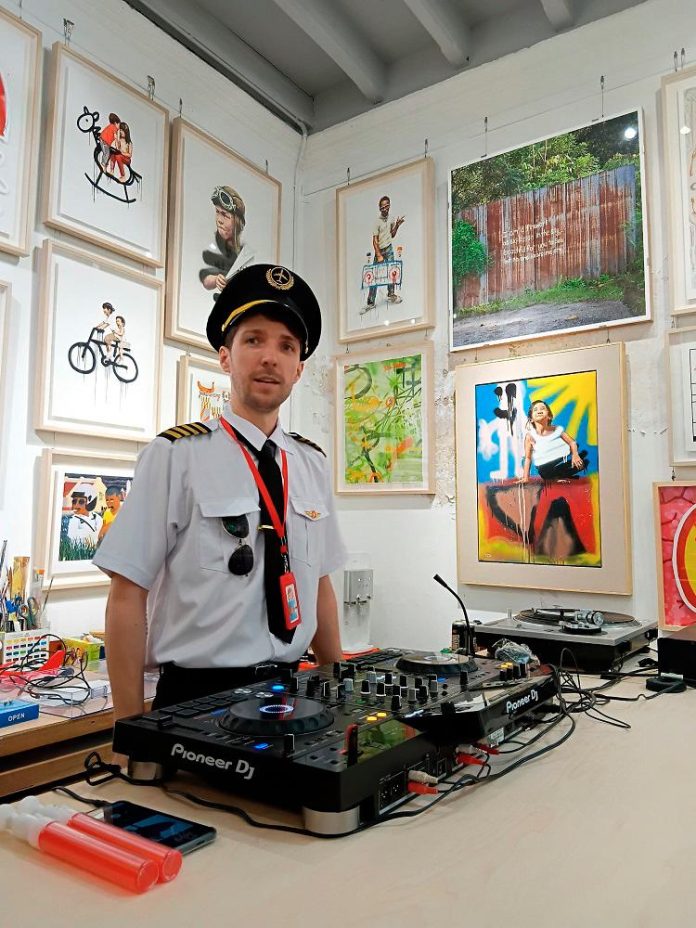LITHUANIAN artist Ernest Zacharevic’s latest exhibition is not just an art showcase, but a boarding pass into the turbulence of artistic rights, corporate irony and public engagement.
Housed at Cultprint on Lebuh Melayu, the immersive installation titled We Need to Talk transforms the gallery into a full-fledged airport terminal, complete with a faux check-in counter, a “runway” bench, a conveyor belt and a cockpit-style console, along with limited-edition boarding passes and class-themed merchandise packs.
“We want the visitors of the gallery to be participants in an experience rather than a viewer of the art. Everyone goes through a bit of inconvenience, delays and frustration when travelling through airports. It is that same frustration that artists go through when their work is used without permission,” said Zacharevic.
The airport metaphor serves as setting and satire. In his ongoing intellectual property dispute with an airline over the unauthorised use of his artwork, Zacharevic has transformed his studio into a powerful platform advocating for artists’ rights.
Modelled after the safety instruction cards typically found behind airline passenger seats, a printed “safety card” at the exhibition breaks down its underlying message. “Art and ideas travel fast these days. But when artworks cross commercial boundaries… the creator is too often left behind,” it read. The display highlights how original works are frequently reused and profited from without permission, credit or fair compensation.








